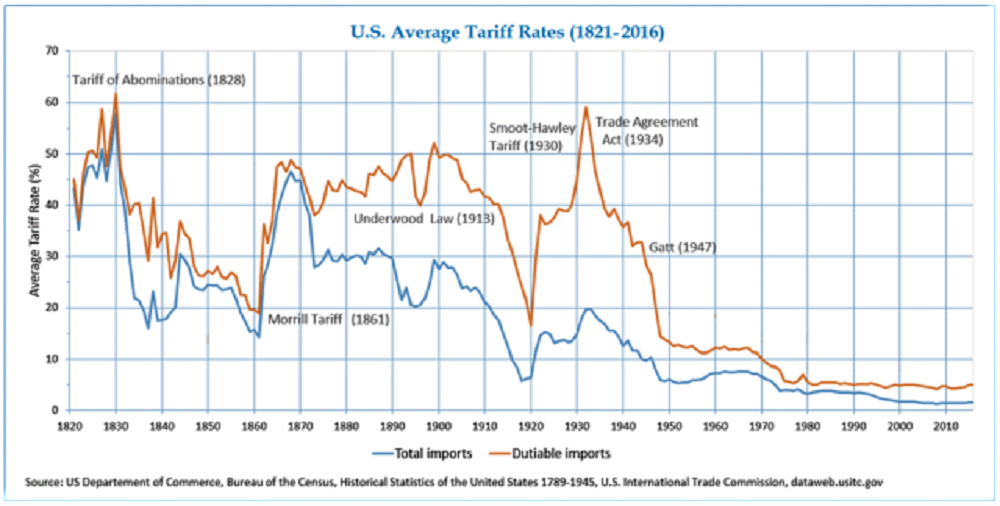McGuire: The Trump Trade War Begins
by D.J. McGuire
Thursday afternoon, President Trump made good on his campaign promises from 2016, and his endless warblings about protectionism dating back to the 1980s — with a tariff policy that already failed in this century.
That’s right, we have been down this road before. Sixteen years ago, President Bush the Younger imposed a steel tariff. As a result, more jobs were lost in steel-using firms than existed in the entire steel industry at that time — or at present (Forbes). Like Trump, Bush carved out an exception for Canada and Mexico.
The exceptions don’t amount to much, in fact. Our North American neighbors only accounted for 25 percent of all steel imports. So our allies in South Korea, Japan, and Germany, will still be hit — as will democracies like Brazil and Taiwan, the gutsy island democracy whose very existence is denied and threatened by Communist China. That’s all the more remarkable, and painful, as the ostensible target of these tariffs was Communist China itself, yet they sell less steel to us than Taiwan does. Japan and South Korea also export more steel to the United States than Communist China.
This is the equivalent of trying to thwart a hostage-taking by killing the hostages. So, why did Trump do it? Largely because he confuses government trade figures with his own profit-and-loss statements. In his mind, a trade surplus is a profit — and a trade deficit is a loss. In reality, it’s a matter of the myriad decisions made by consumers and firms around the world.
Still, trade protectionism has its defenders, especially now that the disaster of the 1930 Smoot-Hawley Tariff (which, depending on which economist is speaking, either caused or exacerbated the Great Depression) is fading into history. Freer trade benefits hundreds of millions with lower prices for goods and services, thus allowing Americans to save more (and increase the pool of funds available to entrepreneurs). That benefit is highly diffused, while the cost to an uncompetitive firm (job loss) is quite concentrated. This leads to steel and aluminum workers thanking Trump for helping their industry while the rest of us await higher prices.
Even so, these tariffs also directly affect other firms (as steel and aluminum are inputs, not final products). This is what made the steel tariff of 2002 so damaging — and unpopular, as Bush lifted them before the 2004 campaign. We also have the risk of retaliation — already promised from Europe (New York Times). This will lead to further job losses among American exporters (much as the 1930s retaliations against Smoot-Hawley did).
There are reasons hardly any economists defend trade protectionism: it disrupts international markets, it hurts consumers, and the retaliations from other nations leads to exporter job loss. Add to it the aforementioned damage to steel-consuming firms, and Trump’s policy looks even worse.
Thankfully, some Republicans in Congress are trying to resist — or even take back — the tariff authority delegated to the president. Unfortunately, most Republican voters like tariffs and trade wars now. It is the Democratic Party that has become the party of free-traders, something their elected officials better notice (Quinnipiac).
As it is, the trade war has begun, and as for me, I’m claiming conscientious objector status.
—
D.J. McGuire can be heard on the More Perfect Union Podcast.

